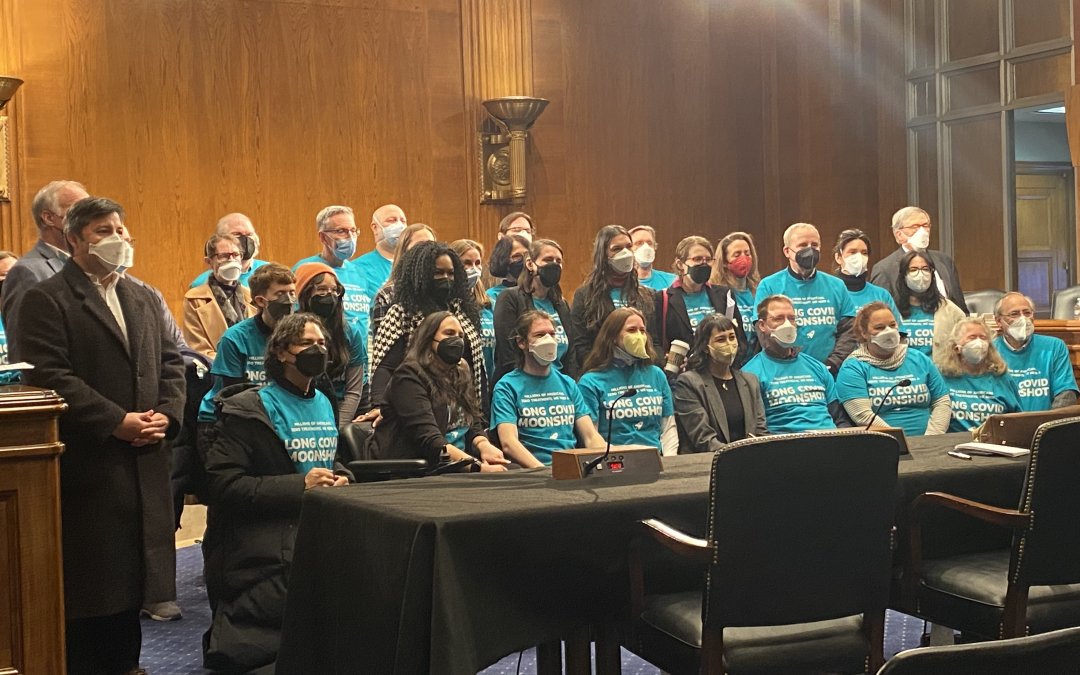WASHINGTON — In February 2020, Angela Meriquez Vázquez was an avid runner with nearly two decades of experience. A month later, she contracted COVID-19 and her life changed dramatically.
What initially seemed like a mild infection developed into debilitating symptoms, including severe blood clots, a series of mini-strokes, and numbness in her face, hands, and legs, which has made even walking a challenge. Now, nearly four years later, she rarely leaves her home.
“We are living through the largest mass disabling event in modern history,” Vázquez said. “Not since the emergency of AIDS has there been such an imperative for large-scale change and healthcare.”
Vázquez’s comments came before the Senate Health, Education, Labor and Pensions Committee on Thursday, which held a hearing to address the issue of long COVID-19.
According to the Brookings Institute, an estimated 16 million Americans suffer from long COVID and experience a range of debilitating symptoms, including extreme fatigue, dizziness, insomnia, and chronic pain. As a result, as many as 4 million Americans are out of work.
However, there are still no FDA-approved long-covid treatments.
“We hear what you’re experiencing,” Chairman Bernie Sanders (I-Vt.) told the panelists. “We have not as a Congress done anywhere near enough and we hope to turn that around.”
Vázquez told the committee that one of the biggest challenges is finding physicians who are knowledgeable about long COVID.
“I had many clinical signs that something was wrong for weeks,” Vázquez said. “All were dismissed by doctors as anxiety,” an experience Vázquez said is all too common for women and people of color navigating the U.S. health care system.
Nicole Heim, the mother of a 16-year-old long COVID patient who testified before the committee, emphasized the importance of physicians recognizing that long COVID affects not only high-risk adults but healthy youth as well.
“Long COVID took my straight-A honors student, talented flautist, and member of the school’s marching band with an active friend group and stripped her of life as we knew it,” Heim said. “Because of the severity of her symptoms, she is no longer able to physically participate in the marching band and is now homeschooled full-time.”
Heim’s daughter is on Medicaid and has access to a wide network of specialty doctors.
However, multiple panelists shared their challenges in navigating the Social Security Disability Insurance system.
Rachel Beale, a long COVID patient from Southampton County, Va., shared that she was denied SSDI twice without any explanation, despite long-COVID being recognized as a disability by the ADA. As a result, she has had to pay an estimated $4,000 annually out of pocket and cut back on services that help her manage her chronic pain.
Sen. Sanders said that Congress needs to hold insurance companies accountable for denying patients care.
“We have a health care system… (whose) function is to make huge profits for the insurance companies,” Sanders said. “We need a fundamental overhaul of our healthcare system.”
Many lawmakers, including Sen. Marshall (R-Kan.) also called for greater oversight of the NIH, which he accused of wasting $1 billion in long COVID funding.
“I would think that if you give somebody a billion dollars, we could have some treatment,” Sen. Marshall said.
Ziyad Al-Aly, a clinical epidemiologist at Washington University in St. Louis, testified that the U.S. has made a lot of progress in understanding the biology of long COVID, but clinical trials are moving slowly.
“We’ve devised vaccines at rapid speed… (but) we’re doing trials for long COVID at snail speed,” Dr. Al-Aly told the committee. “The research effort of long COVID must match the urgency and scale of the problem.”
Sita Zarcufsky is one of the organizers of Long COVID Moonshot, a grassroots advocacy group that is calling on the government to fund $1 billion in annual research funding for long COVID.
“We still have no federal commitment to fund any kind of clinical treatments, and we need those immediately,” Zarcufsky told Medill News Service after the hearing. “This is not a problem that can be ignored anymore.”
In an interview with Medill News Service, Sen. Hickenlooper (D-Colo.) said he “absolutely thinks” Congress can work together to pass funding. “The one hundred senators are all just people like you and me,” Hickenlooper said. “That means they listen and can be persuaded.”


